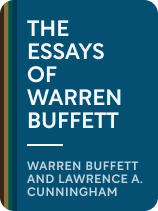

This article is an excerpt from the Shortform book guide to "The Essays of Warren Buffett" by Warren Buffett and Lawrence A. Cunningham. Shortform has the world's best summaries and analyses of books you should be reading.
Like this article? Sign up for a free trial here.
What assets should you never invest your money in, according to Warren Buffett? Why are these investments dangerous?
Warren Buffett prefers equities over other forms of investment. He cautions against bad investments such as unproductive assets, junk bonds, and financial derivatives.
Keep reading to learn why you should steer clear of these investments, according to Buffett.
Investments to Avoid
Some bad investments are made out of fear—people want to keep their money safe in case of a financial crisis. Money market funds and bonds appear safe, but Buffett points out that their interest doesn’t keep pace with inflation. Money in those investments loses value, even as the total dollar figure slowly rises.
(Shortform note: Money market funds are not the same as money market accounts, a type of savings account. A money market fund is a mutual fund that invests in short-term, low-risk financial instruments. Bonds, on the other hand, are fixed-interest loans made by you, the investor, to a company or the government. The most famous of these may be the US War Bonds used to finance the United States’ participation in the second World War.)
More foolish, though, is to invest in assets that are completely unproductive, such as jewelry, collectibles, or gold. Unlike a business, these investments create nothing. These items only have value at all as long as people believe that they do. People who invest in unproductive assets hope that someone else will pay a higher price for them in the future, a hope based more in fantasy than fact. (Shortform note: The most popular current types of unproductive assets are gold and other precious metals, but the classic example of unproductive investment speculation is the Dutch tulip craze of 1636 when, for a short while, tulips became a hot investment commodity in the Netherlands before prices fell back to rational levels.)
Fantasy also drives the market for junk bonds. These are bonds issued by companies that are already saddled with more debt than they can bear. Junk bonds are a way to refinance that debt, but the issuing companies are in such poor financial straits that they still pose a very high risk of default. Nevertheless, there are investment firms that funnel lots of money into the junk bond market, believing once again that diversification minimizes risk. In the case of junk bonds, this is much the same as buying a lot of lottery tickets in order to increase your chance of winning. Buffett writes that junk bonds exacerbate financial crises on a regular basis.
(Shortform note: Junk bonds are often marketed more enticingly as “high-yield bonds” because of their promised high rate of return. The market for junk bonds was particularly active in the 1980s until a series of defaults in 1989 sent the stock market into a downturn that led to the bankruptcy of the investment firm Drexel Burnham, one of the chief underwriters of junk bonds. There were fears of a similar crisis in 2015, but the junk bond market stabilized itself. Despite the risk involved with high-yield bonds, in A Random Walk Down Wall Street, Burton G. Malkiel doesn’t discount them as an option for young investors with diversified portfolios.)
Financial Derivatives
The most troublesome of all complex financial products are derivatives, such as those that drove the subprime mortgage crisis. Buffett explains that derivatives are contracts between two parties in which one pays the other if some other financial instrument (for example, a stock or a bond) reaches a certain price, up or down. In the simplest terms, derivatives are bets that a portion of the market will behave a certain way. They are instruments of pure speculation, and unless there’s some form of collateral involved, a derivative’s value rests entirely on the financial strength of the parties involved in the gamble.
Buffett argues that derivatives are also instruments of fraud. Until the derivative actually comes due, both parties to the bet can use fictitious projections to claim that their derivatives produce actual earnings, and then get paid by their investors based on those supposed earnings (like receiving a cut from a race horse’s winnings before the race is even run). It’s only when one of the parties tries to cash in on their derivative contract that any fictitious claims about its value are revealed, and if the “loser” of the derivative bet defaults, then both sides’ projected earnings disappear. Before that time comes, however, derivative contracts are designed to be so complex that their true risks and false earnings claims are hard for portfolio auditors to spot.
Even more than avoiding such toxic financial products, Buffett wants to impress upon his readers that you should never borrow money to invest. This has always been the curse of Wall Street, and it’s led many individuals, companies, and banks straight down the road to financial ruin. Brokers, advisers, and money managers sugar-coat debt by calling it “leverage,” which fueled the corporate takeover craze of the 1980s. Easy access to debt can be like a drug, especially when tied to the thrill of investing. Eventually, though, all debts come due, and if your investments have dropped in value, you won’t be able to pay your debts off. However, if you only invest with cash, you’ll be well-prepared for any hiccups in the market.

———End of Preview———
Like what you just read? Read the rest of the world's best book summary and analysis of Warren Buffett and Lawrence A. Cunningham's "The Essays of Warren Buffett" at Shortform.
Here's what you'll find in our full The Essays of Warren Buffett summary:
- A glimpse into the mind of a man who disagrees with the typical Wall Street mogul
- Buffett's simple yet difficult insights on investing
- Why some of the most widely accepted economic practices are wrong






